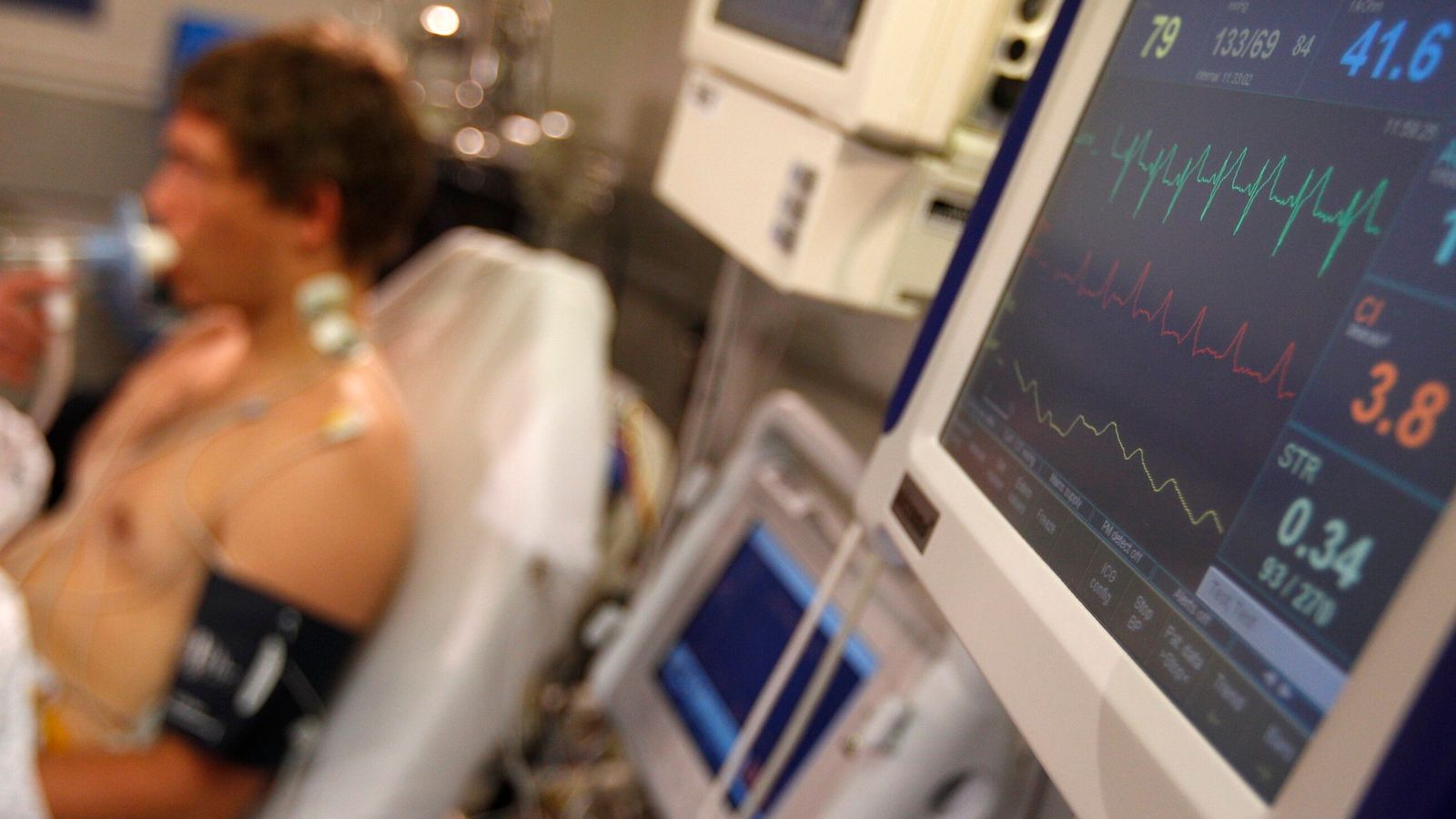Medical students are having to cut back on daily essentials such as food, clothing and heating their homes in order to survive the rising cost of living.
Millicent Metz has taken on two jobs to keep afloat alongside her final year of studying at medical school, working at a GP surgery and as a first aider.
The 24-year-old told Sky News: “Other than the NHS bursary, working and plus we get some money from Student Finance, it doesn’t cover us for the average rent in London.
“How are you meant to pay rent with something that doesn’t cover your rent?
“I don’t know where they think this magic money comes from. And there’s nowhere else we can go.”
The British Medical Association has found that 60% of medical students are being forced to cut down on the basics, with a similar amount (53%) having to work during term time to pay bills and keep themselves from going hungry.
As well as struggling with monthly rent, Millicent points to the issue of upfront transport costs for medics too.
UK can be ‘confident’ it will get energy supplies over winter, says Number 10
UK inflation to top 18% as gas prices soar, banking giant Citi forecasts
Sir Keir Starmer calls for home insulation plan to save households cash as energy bills hike looms
“For travel, we do get reimbursed by the NHS Bursary, but only at the end of the teaching block.
“So right now I’m at a GP surgery that’s an hour bus ride away. If I get the bus every day it’s £1.65 each way, four days a week – an expense I won’t see for weeks.
“That’s quite a lot of money.”
Just like all full-time undergraduates in England, for the first four years of their studies, medical students are entitled to £9,706 outside of London, or up to £12,667 in London if living away from home.
Medical students typically receive the NHS bursary in the fifth and sixth years of their course, which includes a non-means-tested grant of £1,000 and a means-tested grant of up to £2,643 outside of London, or up to £3,191 in London, if living away from home.
The NHS Bursary provides additional allowances such as for childcare, travel and accommodation, and exists to help students manage shortfalls between their income and expenditure.
Medical students can also access “a reduced maintenance loan” from Student Finance England in their final years.
It means their incomes significantly reduce in the latter part of their courses, just when the BMA argue they are on clinical placements in the NHS and have less time to work.
Omolara Akinawonnu, co-chair of the BMA’s Medical Students Committee said: “We see students cutting back on essentials such as food and heating, but we know there are heavy costs associated with medicine, cost of travelling, cost of parking, scrubs and various other things associated with doing a medical degree.
“That’s only going to be exacerbated because of the cost of living crisis.
“A lot of students are working two jobs during term time when they’re meant to be on clinical placements and focus on their studies, which will have a knock-on impact on their studies, maybe career progression and their mental health.
Read more:
NHS faces ‘greatest workforce crisis’ in history
Nurses set to vote on walkout over pay as RCN boosts strike fund by £15m
Ms Akinawonnu says this may stop students from considering a career as a clinician or in the wider industry.
“I think medicine has made great strides in order to widen access.
“We’ve seen an increase in the number of medical students with low socioeconomic backgrounds and from state schools in particular applying to do medicine and we don’t want to see a reverse of that because of these findings.”
A spokesperson from the Department of Health and Social Care told Sky News: “We are committed to supporting medical students in England across all years of study and are keeping funding arrangements for all healthcare students under review.
“Where a student is struggling financially and is eligible for the NHS Bursary, extra funding is available where they may be able to claim between £100 and £3,000, as well as wider government support which is in place for vulnerable people and individuals on low incomes, including students.”





